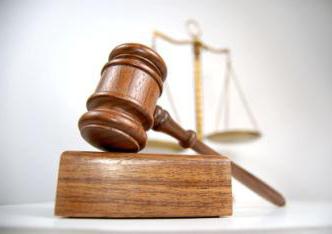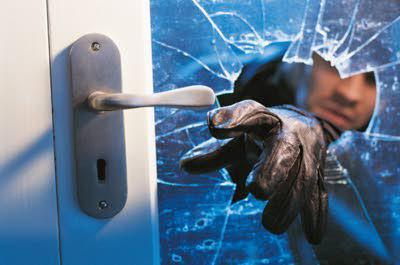Criminal acts are considered as a kind of conscious behavior. They are caused by negative processes in the minds of people. Man, of course, is not born with these violations. Consider further crime factors. 
Determinants of crime and their causes
Negative processes in consciousness arise under the influence of various social phenomena related to moral, political, interethnic and other conflicts. All these factors form a fertile ground for the development of crime. However, their influence is not directly. Regarding crime, they act as conditions that create causes. The latter are psychological and social determinants of crime.
Among the most common reasons include greed, aggressiveness, disrespect for social norms, legal nihilism, money-grubbing. Meanwhile, many experts agree that it is impossible to name any one main factor responsible for the diversity of types and forms of crime. Reasons are crucial when a person makes a decision to commit an act, the choice of illegal means to achieve the goal, the formation of a motive.
The concept
Determinants of Crime - these are the specific reasons giving rise to this phenomenon. The presence of a complex of conditions determines the occurrence of this phenomenon. Meanwhile, one cannot analyze the main determinants of crime by only grouping the reasons for various reasons, under different circumstances, when they change. As practice shows, even the most common of them unequally affect the qualitative and quantitative indicators.
Types of causes
Currently, there are various types of determinants of crime. Diversity is associated with the complexity of public relations. Today adopted the following classification of crime determinants:
- According to the content. According to this criterion, economic, social, legal, educational, organizational and managerial, etc. are distinguished.
- According to the degree of impact. According to this criterion, the determinants of crime in general, certain types of acts (associated with the use of violence, for example) and a specific illegal action are distinguished. The higher the degree of exposure, the more general the content will be. determinants of crime.

Conditions
They are social phenomena that do not directly trigger a crime. However, they act as a basis for the formation and subsequent impact of the cause. Conditions reinforce criminogenic determinants of crime, facilitating their influence. The choice of the method of executing an unlawful intention, as well as the object of the encroachment, will depend on certain circumstances.
The conditions determine the nature and extent of the harm caused by illegal behavior. These may include circumstances related to the external environment (activity of law enforcement agencies, latency (secrecy) of certain acts, various public attitudes to certain actions, material conditions) or related to the identity of the attacker (dependence on alcohol or drugs, for example). Depending on the situation, one circumstance can be both a condition and a cause.
Determinants of Female Crime
To successfully combat antisocial phenomena, law enforcement agencies analyze statistics, monitor the situation, and compare data from different years.According to research results, the number of crimes committed by women has recently increased. The reasons for this are quite diverse. The main determinants of crime are:
- More active participation in social production.
- Weakening of key social institutions. In particular, it is primarily a question of reducing the role of the family and the lack of public control.
- Increased tension, people's anxiety, increased conflict, hostility.
- The development of prostitution, drug addiction, alcoholism, begging, vagrancy.

Background
Women have now begun to work more in production than in previous years. Their activity in the public sphere has increased. These determinants of crime in Russia got their development even in those regions where the traditional way of life is still preserved.
Today, the fairer sex accounts for about half the number of employees and workers in such fields as education, healthcare, art, culture, science, trade, catering, sales and procurement, state insurance and lending, the textile industry and several others. More than half a million women are heads of enterprises, organizations, institutions, about 1 million are heads of plots, workshops, departments, various structural divisions. A huge number of them thus gained access to significant material values.
According to statistics, in recent years the number of thefts in production has increased. Women commit these crimes not only because values have become more accessible, but also because it is impossible to acquire these goods legally. Today, many enterprises do not have sexual qualifications. Men and women work in the same conditions. They have one day duration, common rates and rates. However, women are more likely than men to be adversely affected by different circumstances. In addition, they are physically weaker.
If we turn to statistics, it can be noted that a large number of women who committed crimes were previously employed in hard or prestigious work. Naturally, they do not value her and may well abandon her. Theft and other illegal acts become a source of funds. 
The reasons for the illegal acts of adolescents
Specialists distinguish the following main determinants of juvenile delinquency:
- The influence of a negative example of parents and other relatives. Under the influence of adults, up to 30-40% of acts are committed.
- Incitement by adults.
- The lack of opportunities for parents to meet the child’s real needs.
- Propaganda of standards of antisocial activity in literature, media (cult of cruelty, violence, etc.).
- Continuous absence of classes, study, work.
In addition, the impact of society is of no small importance. As a result, additional determinants of crime teenagers. In particular, we are talking about the lack of proper control on the part of the family and the educational institution - neglect. The state lacks a clear system of employment and leisure for adolescents, which also exacerbates the situation. In addition, the share of persons with a lag in volitional and intellectual development has recently increased.
Violation of environmental legislation
Are common determinants of crime in the field of environmental protection are caused by contradictions arising from the interaction of people with nature. Moreover, conflicts take place at various levels. In particular, contradictions arise between the possibilities of the state, region, society for the use of resources, its research and existing needs, between the forms of ownership of natural goods and the ways of their development.All of them are complex processes, which in the conditions of unfavorable development of the national economic complex form sustainable determinants of crime in the field of ecology. 
Specific reasons
If we talk about the general prerequisites for the emergence and spread of environmental crimes, we should separately dwell on the study of the prevailing system of views, which carries pronounced deformations and gaps in public consciousness. First of all, they include:
- Reassessment of human capabilities, its abilities to optimally influence natural processes, timely learn about the features of interaction with the environment.
- Orientation to dubious and often false priorities and goals in the field of interaction with the ecosystem.
- Inadequate ideas about the inexhaustibility of reserves, unrealistic assessments of the ability of nature to regenerate itself.
- Indifferent attitude to the state, the fate of the ecosystem, the harm done.
- Disrespect for environmental law.

The participation of officials in attacks on environmental relations
Case study allows you to divide them into committed employees and entities that do not occupy any positions. Acts can be intentional, reckless, have a selfish or other purpose. Official crimes pose a great threat to society. Often they suffer enormous damage, often irreparable. A negative impact on the behavior of employees has:
- Orientation to the imaginary reduction in the cost of mining and other resources due to non-compliance with mandatory environmental measures.
- Unjustified acceleration or simplification of production planning for processing, misallocation of stocks.
- Ignoring the negative consequences of human activities for nature.
Business sector
Within the framework of any economic relations, contradictions arise. They form the prerequisites for the commission of unlawful acts. Economic determinants of crime due to the presence of competition. In the market, each entity seeks to occupy the most profitable niche. Accordingly, different measures are used to suppress competitors.
At present, the stratification of people by property status has become distinct. Key economic determinants of crime - lack of food and consumer goods, unemployment. Lack of products is not only the cause of a decline in the quality of life of the population, but also a circumstance that creates the conditions for the moral justification of entities committing illegal acts. At the same time, the deterioration of the well-being of some creates the basis for the enrichment of others. Under certain conditions, more serious crimes arise and spread in such a situation. They, in turn, provoke conflicts, tensions in society. These acts form the social determinants of crime. The result is a chain reaction.
Public relations and illegal activities
Each determinant of crime criminology cannot be considered apart from others. For the most adequate assessment of what is happening, a deep comprehensive analysis of all causes and conditions is required. Public relations are as diverse as economic ones. It can be argued that interactions in which a person feels infringed always involve a protester, and in some cases an illegal action. A rare person is completely satisfied with his social position.
Among others determinant of crime criminology highlights the tendency of people to their own revaluation. But the versatility of human life usually maintains a balance of contradictions. As a result, the individual is a member of society and lives in it, even if he is not completely satisfied with his status. He still obeys the laws of the state. 
Paradigm shift
For quite some time in criminology it has been argued that crime is a public phenomenon. Accordingly, in the framework of discussions about its causes, the national theme was practically not addressed.
The enmity and hatred awakened by politicians, stimulated by slogans of sovereignty, sometimes reduced to absurdity, became the prerequisites for many serious acts. Among them are terrorism that has spread throughout the world today, the massive use of weapons, and killings. These acts, in turn, woke up common crime. Life in such conditions becomes unbearable. One of the consequences of national conflicts was the issue of refugees. People leave their homes not only because of a panic fear of an unknown future, but also due to threats, as well as constant mental pressure.
Political interests
With their defense, conflicts are inevitable. Nothing can separate people in opposite directions like political disagreement. Human history knows many tragic events. Wives poisoned their rivals or husbands, fathers killed children, party comrades eliminated each other. Populist recruiting speeches often pushed people into indiscriminate massacres, the rout and destruction of everything that was in their way. Meanwhile, the paradox of relations is that ambitious politicians in their hype seem to not see or want to notice that their actions form the conditions for the development of crime. Moreover, these people themselves are outraged and, under the influence of the people suffering from lawlessness, take measures to combat it. Opponents of the current government always speculate on this.
Moral state of the population
In it you can also find many determinants of crime. The formation of moral principles, moral values acts as a key component of the upbringing of society as a whole. Work with the population requires proper education, instilling a culture, and obtaining a specialty. No area of life can exist without moral standards: neither politics, nor the social sphere, nor the economic sector.
The destruction or affirmation of moral principles depends primarily on the intelligentsia, especially the creative. The opinion that only law enforcement agencies can strengthen moral standards is the deepest error or intentional speculation on a complex problem. The moral state of society and the predominance of certain principles is the face of representatives of the intelligentsia, the result of their creative, scientific activities. This indicates their great responsibility to the population, including for the criminal situation in the state.